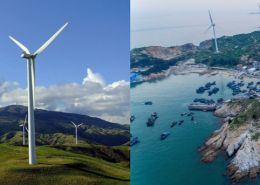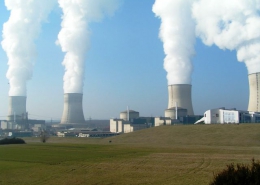Sustainable Fuel Partnership for Asia
Place: Asia • Dates: 2011 • Partner: ADB
Project Summary
The 48 regional members of the Asian Development Bank (ADB) represent a large and diverse group of countries, comprising 25% of the world’s land area, 56% of humanity, and 29% of the global GDP. Beginning the century with relatively low average income, the region is projected to continue relatively high growth rates over the coming decades. This will happen as Asia’s large emerging internal markets (China, India, and the Association of Southeast Asian Nations) see rising consumer demand succeed the historic export led growth model, offering opportunities for more stable, diversified, and inclusive economic activity around region. This projected growth, considering historical middle class emergence in the West and the large population of the region, will translate into substantial energy requirements and has the potential to contribute to further global warming.
To respond effectively these opportunities and challenges, both policy makers and private stakeholders need better understanding how demand patterns in regional energy markets will grow and change. One area of special importance is the rapidly expanding vehicle market of the region, as increased vehicle fleets will lead to increased energy demands and pollution. This study aims to project the future vehicle demand for the Asia and Pacific Region in to better prepare global energy markets achieve sustainable development.
The objective of this report is to assess the potential economic benefits and wider market implications of more determined policy approaches to efficient regional transportation services. Because indirect effects can far outweigh direct or negotiated trade effects, a GE assessment gives a more complete picture of the inclusive benefits of such cooperation. More comprehensive assessment such as this implicates a much larger universe of economic actors, and provides essential evidence to inform both the policy agenda (integration, inclusion, etc.) and supporting investments needed from public and private stakeholders.
In support of the Sustainable Fuel Partnership (SFP), this project will develop long term estimates of energy use patterns and price dynamics, globally and for specific countries. The SFP is a collaborative policy initiative comprising the Asian Development Bank (ADB), International Energy Agency (IEA), and Oxford Environmental Change Institute (OECI, Transport Studies Unit), formed with the intent to promote more sustainable transport development, particularly in Asia, with concomitant reductions conventional fuel demand growth and other co-benefits.
By elucidating the market consequences of alternative scenarios for energy and transport policy, technology innovation, diffusion, and adoption, SFP can influence the course of public and private behavior. More specifically, it is hoped that better understanding of future benefits will promote mechanisms to facilitate sustainable energy policies and private investment, such as a proposed Fuel Security Credit (FSCs). To this end, SFP has developed baseline and counterfactual scenarios for patterns of transport system development and technology deployment over the period 2010-2050. These scenarios are to be used as inputs to long term forecasting models that can predict resulting trends in future energy use and prices. A report on these estimates, including analysis of the significance of uncertainty in the underlying baseline (especially oil prices) might affect the forecasts, will be the primary output of the present activity.
More specifically, this project assesses how policy mechanisms like FSC can be expected to alter the trends and volatility of global conventional energy prices, regional fuel payments, and subsidies. The latter policies are very important to ADB developing member countries, for reasons of social safety and growth promotion, yet they may have unintended consequences for technology choice and energy use. As motorization in the region accelerates, and energy prices continue their historic ascent, these policies have also become a major fiscal burden, diverting ever-greater public resources and challenging their sustainability. The evidence developed from this study will improve visibility for policy makers seeking to make most efficient use of public funds and promoting more sustainable growth and development patterns.
Most Recent Entries

California and China: Leadership for a Low Carbon Future

Roadmap on the Prospects for GMS National Scaling and GMS Regional Coordination of Agrifood Traceability Schemes





